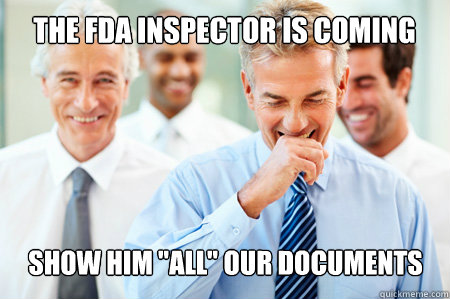"Monsanto and a consortium of European chemical companies that performed the risk assessment for the re-approval of glyphosate....
...glyphosate poses no unacceptable risks. Glyphosate is not metabolized or accumulated in the body, not genotoxic, not carcinogenic, not endocrine disrupting, and not considered persistent or bioaccumulative; it has no reproductive toxicity, no toxic effects on hormone-producing or hormone-dependent organs, and no unacceptable effect on bees. Therefore any risks are within acceptable standards. The only risks noted were that glyphosate is a severe eye irritant and is persistent in soil.

...glyphosate poses no unacceptable risks. Glyphosate is not metabolized or accumulated in the body, not genotoxic, not carcinogenic, not endocrine disrupting, and not considered persistent or bioaccumulative; it has no reproductive toxicity, no toxic effects on hormone-producing or hormone-dependent organs, and no unacceptable effect on bees. Therefore any risks are within acceptable standards. The only risks noted were that glyphosate is a severe eye irritant and is persistent in soil.
Issues that could not be finalized in the assessment were: relevance of impurities, effects on microorganisms, effects on non-targeted plants, and indirect effects on biodiversity - non-targeted organisms, particularly birds.
The Proposed Decision at the end of Vol. 1 is completely blacked out.
...How did they arrive at such a preposterous conclusion when the evidence for glyphosate herbicides toxicity has accumulated worldwide to such an extent that a number of countries are already banning its use?
...Denmark took the lead to ban the herbicide back in 2003 [2] The Dutch Parliament banned it in April 2014 for non-commercial use [3], to take effect by the end of 2015; France is set to follow. Brazil, one of the largest growers of glyphosate-tolerant genetically modified (GM) crops has now filed a law suit by Federal Prosecutors to ban glyphosate along with 8 other dangerous pesticides [4]. El Salvador imposed a complete ban in February 2013, linking glyphosate herbicides to an epidemic of chronic kidney disease that has struck the region [5]. Sri Lanka’s scientists have provided evidence for glyphosate accumulation in the body especially in the presence of hard water. Its ability to capture and retain arsenic and nephrotoxic metals enables it to act as a carrier to deliver the toxins to the kidney [6] (see [7] Sri Lanka Partially Bans Glyphosate for Deadly Kidney Disease Epidemic, SiS 62). The Sri Lankan government initially instituted a ban, but reneged under pressure from industry [8].
Glyphosate has also been linked to many other health problems including cancers (see [9] Glyphosate and Cancer, SiS 62), infertility (see [10] Glyphosate/Roundup & Human Male Infertility, SiS 62), along with neurotoxicity, reproductive problems, birth defects, genotoxicity, and other human health problems as well as ecotoxicity (see [11] Ban GMOs Now, special ISIS report), and many have considered a world-wide ban long overdue.
Glyphosate Task Force (GTF) [19]. And the GTF consists of Monsanto and a consortium of chemical companies all over Europe, including Syngenta UK and Dow Italy, with an odd one from Taiwan thrown in for good measure (see pp. 9-13 of Vol. 1 of the RAR [13]). Although the BfR added comments here and there, all the assessments of the toxicological studies were from the GTF. Hence Monsanto and other companies who stood to gain from selling glyphosate herbicides were given free rein to pronounce glyphosate effectively even safer than before, hence the increase in ADI.
Let us be clear: even the industry’s studies found toxic effects for acute (single dose), subchronic (short-term) and chronic (long-term) exposures at some dosage. The way the game is played is to vary the dose and find the maximum dose where no adverse effects are observed (NOAL). Then divide that by 100 to obtain the ADI and declare the substance “safe”. The chemical industries already knowthat glyphosate is toxic and can cause a host of physical problems.
...The entire process of risk assessment for re-approval was flawed and corrupt to the core. It is rife with conflict of interest, non-transparent and heavily biased towards unpublished, non-peer reviewed studies from industry. The RAR is worse than useless, and should be rejected outright. All available evidence including studies on commercial formulations of glyphosate herbicides should be seriously considered in any risk assessment, and by a truly independent, unbiased panel free from any conflict of interest."



No comments:
Post a Comment